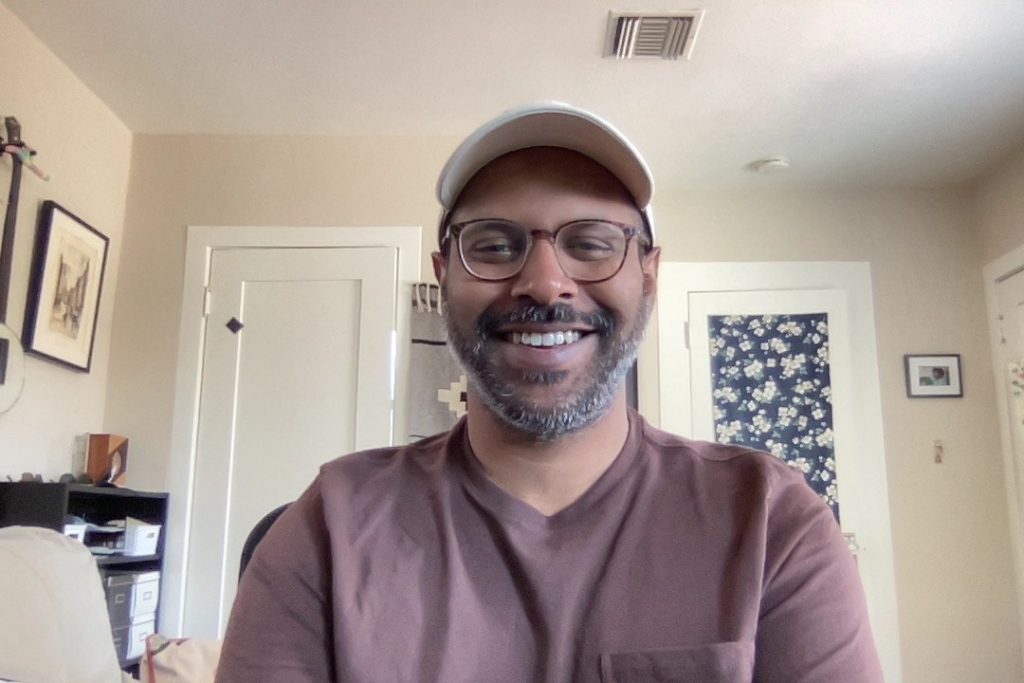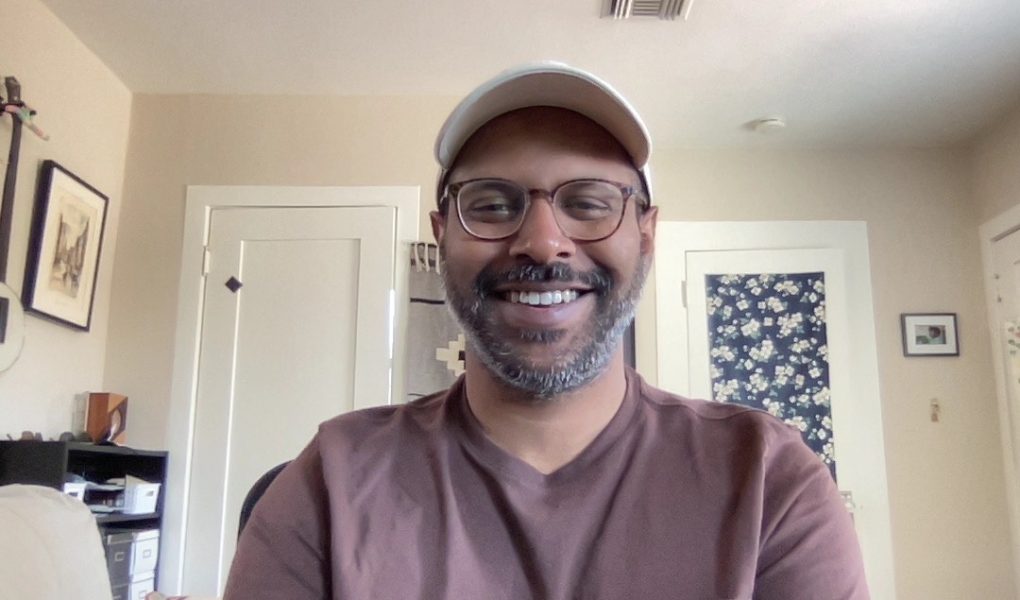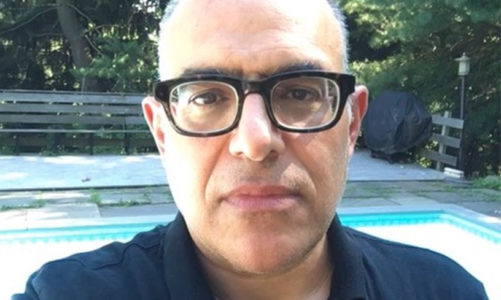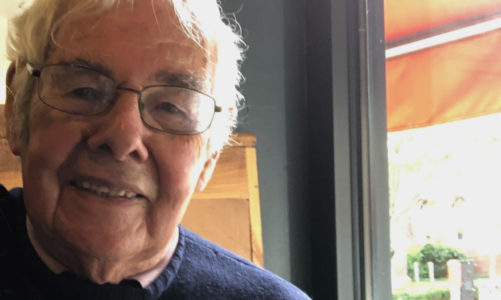
Bhi Bhiman is a St. Louis native and folk singer, songwriter, and producer, who has faced critical acclaim by the likes of NPR and The Washington Post. In addition to having three studio albums, BHIMAN, Rhythm & Reason, and his inventive record that was released as a podcast, Peace of Mind Bhiman has collaborated with a diverse list of creatives including comedian/actor Keegan-Michael Key, author Dave Eggers, rapper and director Boots Riley, and late iconic musician Chris Cornell.
Evan Stein: I understand that with your upcoming record, you’re moving away from politics and deciding to look inward for your songwriting. Can you walk me through that decision?
Bhi Bhiman: First off, I write “political” songs in the sense that I write about the social situations that necessitate political reaction. I try to focus on songs that are more socially conscious than they are political, per se. With this new record, a lot of it was just being stuck inside during the early stages of the pandemic. Half of me loves Rage Against the Machine and Bob Dylan but at the same time, I love all kinds of other music that has nothing to do with sociopolitical issues but is rather about connecting as a human being. Over the past few years, I’ve also had a number of losses of family and the music that I’ve been writing has been a way for me to work through grief, anxiety, sadness, and all the other emotions associated with that.
You tend to approach these often complex issues with a very personal lens, I presume, in an attempt to make them relatable to those that don’t have the same experiences you do, like explaining generational racial strife through the lens of a rocky relationship. How do you feel about having to water down your words or become ”relatable” to garner empathy from a large portion of the country?
I do find it frustrating but that’s not just me. In terms of acoustic guitar-playing folk singers, there aren’t a lot of other dark-skinned people out there. Certainly not of South Asian descent. They’re out there, just not prevalent. I grew up in St. Louis, Missouri at a time when there weren’t a lot of people who looked like me. I had to work around that. I focus a lot around how I craft the message. I do have to craft my songs in a different way than a lot of my contemporaries but that’s just the way it is.
Politics very much is a game. Oftentimes, it isn’t about helping people but is really about the argument of two people. You hear about something in the news and forget that it’s real life and that the people on screen are real people with lives and families. I find that it is more interesting to write this way. On “There Goes the Neighborhood,” I use different vantage points from my own. That song is from the perspective of a Fox News viewer who is fed up with the way things are going.
That’s not my opinion but I found that to be an interesting take. Some actors love to play the villain and musically, I find that take really interesting. It may rub some people the wrong way, but to the people who know me or know who I am, it’s like a little nod.
You’re very open to explaining exactly what your songs are about and where you’re coming from with each one. Your Peace of Mind podcast is a really good example of this. The saying, “Never reveal the meaning of your art,” comes to mind. Where do you stand on this as someone who is so open about revealing the meaning of your art?
When you do interviews, you end up having to talk a lot about your music. To me, the art is the statement. I don’t want to have to make another statement about the statement. A lot of people are artists because they’re not as good with words as they are at writing music. With the podcast, that was laying a lot of my cards out on the table. That’s tough and not particularly fun. It sucks working years on an artistic endeavor and having that piece of work not be good enough to express what you were trying to express.
I think back to the past’s introspective and political folk singers and immediately think of the pop success of Bob Dylan. There seems to be largely an absence of an artist like Dylan on the modern pop charts. What do you think occupies that spot nowadays?
Folk music is not popular anymore. It isn’t shocking but it is interesting to see that in these past few years, which have been some of the most frustrating politically and socially, pop music has turned to be more about anxiety and taking drugs. It’s not about social or political unrest because people don’t want to always think of that. It’s strange to me that we lean more towards escapism than attacking these issues.
Everything has become so niche-based. You can live in one world and avoid the other. Back in Dylan’s heyday, if Bob Dylan wanted to say something, the radio cared and you heard what he had to say whether you wanted to or not. People’s outrage comes out in different outlets these days. Maybe it’s Twitter. Maybe it’s spending all day on CNN or talking to your friends. There is, however, still room for social commentary and politics in music.
Thank you for giving me your time. Before we wrap this up, any final words for our readers before we bring this to a close?
I’ve got a new record coming out in July called I’ll Sleep When I’m Famous. The singles will be called “Up All Night” and “Helpless.” They are some of my favorite songs I’ve ever written and I knew it as soon as I wrote them. It’s rare that something comes that easily but I’m really happy with these.
I understand you first really used your voice at the age of twenty. That discovery obviously changed your life at a time when you really needed guidance. What is your advice for someone who needs help finding their path or finding their voice?
You cannot be afraid to be a failure. One failure does not define you as a failure. It just means that attempt was a failure. Anyone who is great at anything cannot be afraid to fail because it is simply part of the process. Failure to learn and improve is infinitely worse than failure itself. When you try something, you want to end up somewhere. Failure doesn’t mean you won’t reach that place. It just means you get to try again.
*This interview has been edited for length and clarity.




